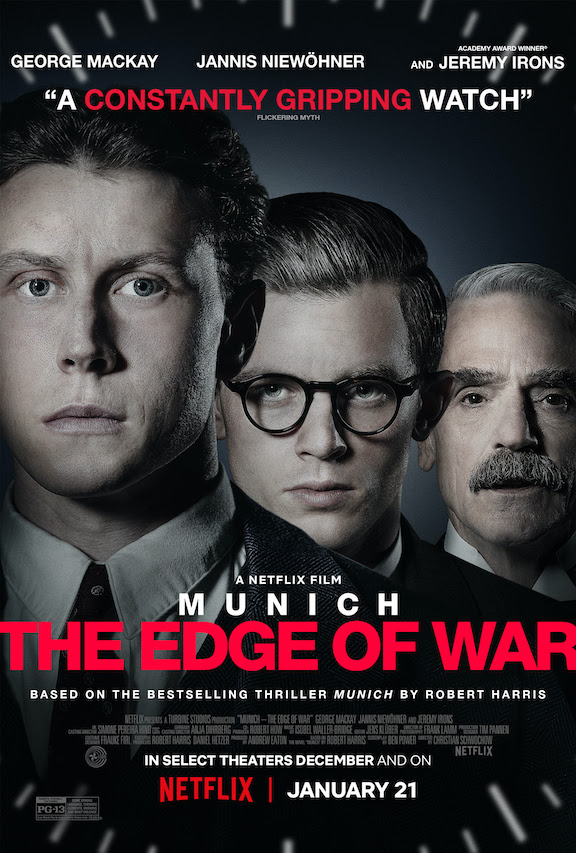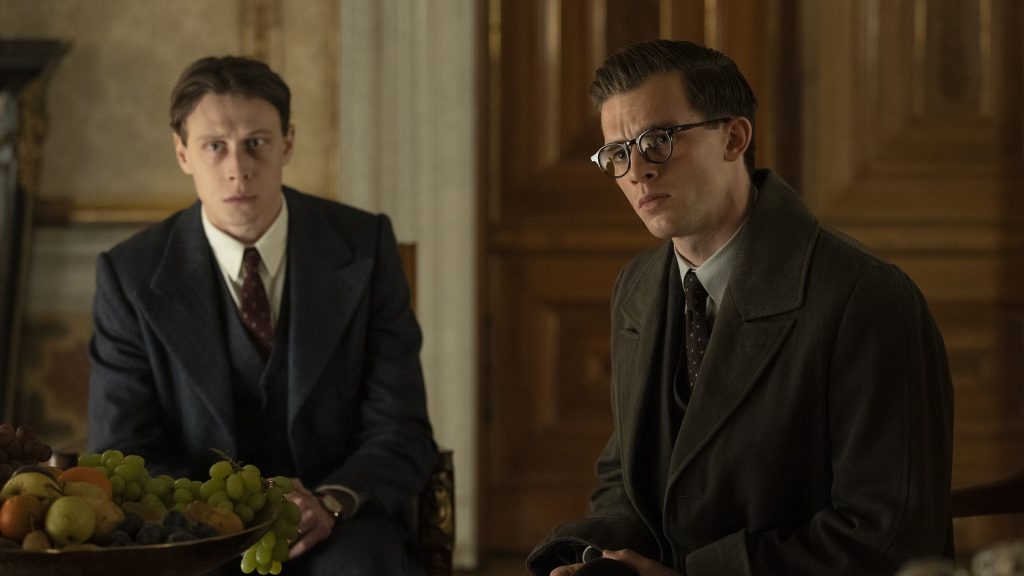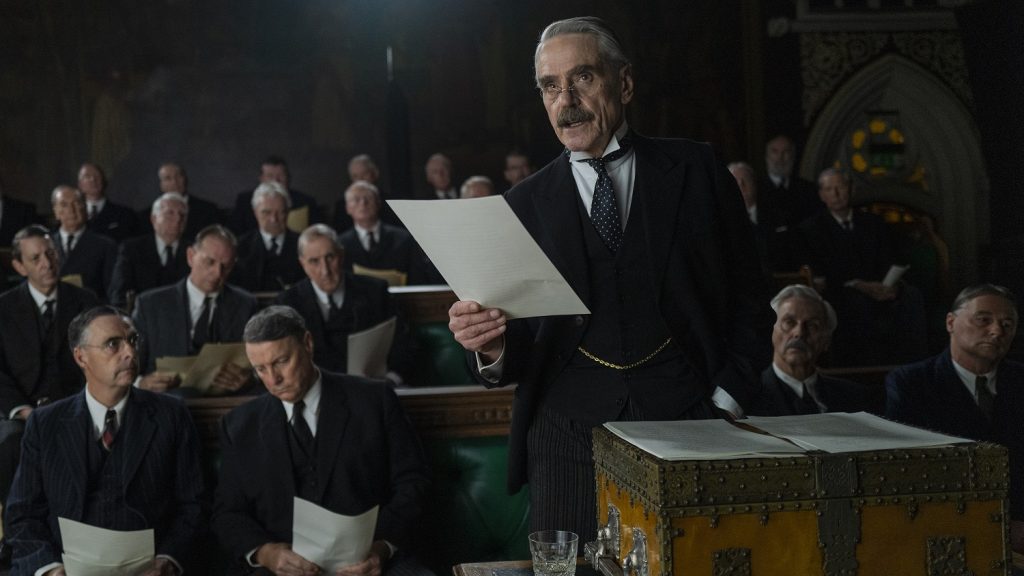
The run-up to a major conflict is often filled with great tension, but it can also be a period of relative peace, where those not actively involved in negotiations or strategy might be blissfully aware of anything being unstable. Looking back on history, it’s easy to see the points at which direct action at an earlier moment might have been crucial in preventing future casualties and prolonged war. Munich: The Edge of War examines the days just before the outbreak of World War II and the personal relationships that almost succeeded in tempering a global crisis.
Hugh Legat (George MacKay) works as a loyal government employee in 1938, which puts him in close contact with British Prime Minister Neville Chamberlain (Jeremy Irons), while his wife Pamela (Jessica Brown Findlay) expresses resentment that he devotes all his time to his work. He encounters his former classmate Paul von Hartmann (Jannis Niewöhner), who has German documents that show that Adolf Hitler (Ulrich Matthes) has plans to continue his quest for power, and who is determined, with the help of Helen Winter (Sandra Hüller) and other allies, to deescalate things and ensure that Hitler does not take his country to war for a cause he does not believe is just.

This film, which is based on the 2018 novel of the same name by Robert Harris, sets itself at a moment in time that should be mildly familiar to most with a working knowledge of history. It is before the rise of Nazism had become so prevalent that Western powers no longer had any interest in negotiating with Germany’s elected leader, and when some – like Hartmann and Winter – still believed that peace was possible. The specific characters are invented but helpful to the overall dynamic, one that explores what loyalty means for those serving different nations with the utmost commitment.
Since Legat and Hartmann are the main players of this story, the well-known figures at the head of each country play supporting roles. Though Hitler does appear, he makes a less distinct impression than Chamberlain, who is brought to formidable life by Irons, an actor who has been steadily working for over four decades, recently turning in memorable – and drastically different – performances in House of Gucci and Watchmen. He commands his scenes and makes Chamberlain a relatable politician whose casual conversations with Legat reveal a gentle sincerity.

Munich: The Edge of War has a strong lead in MacKay, who is perhaps best known for portraying another fictional character deeply involved in a crucial moment of war in 1917. He’s just as skilled playing someone who, two decades later and on the eve of another world war, is far from the battlefield and able to retain his composure, not running anywhere but shouldered with considerable responsibility that carries enormous weight. He has solid support in the cast from Niewöhner, Hüller, Findlay, and, in memorable parts, Alex Jennings and August Diehl as key figures working for opposing governments.
The one drawback to watching this well-executed political thriller is that viewers should know how it ends before the film even begins. Due to it not being an instance of revisionist history where a global conflict that left millions dead was averted, this film navigates an expected course as its characters’ efforts, however dogged, ultimately prove unsuccessful. The journey there is still worthwhile, and director Christian Schwochow, who has previously explored the effects of World War II and the Holocaust on postwar Germany in films like West and The German Lesson, proves skilled at winding back the clock and honing in on one last great opportunity to chart a different path for two nations and the world.
Grade: B+
Check out more of Abe Friedtanzer’s articles.
Munich: The Edge of War is now playing in select theaters and will be released globally on Netflix on Friday, January 21st.

